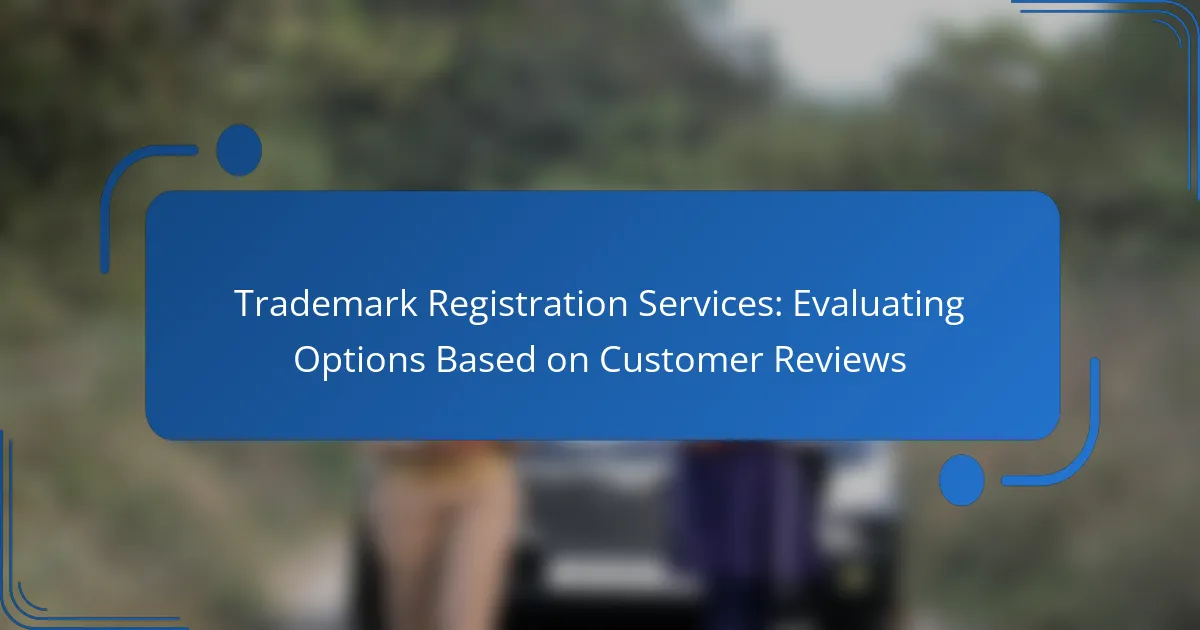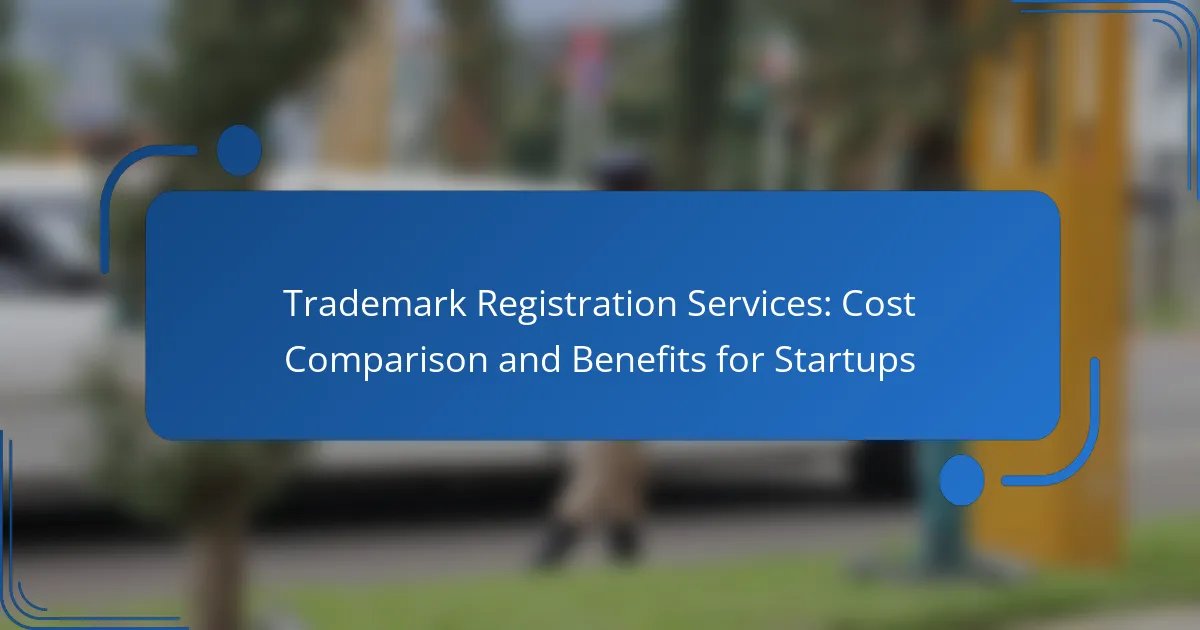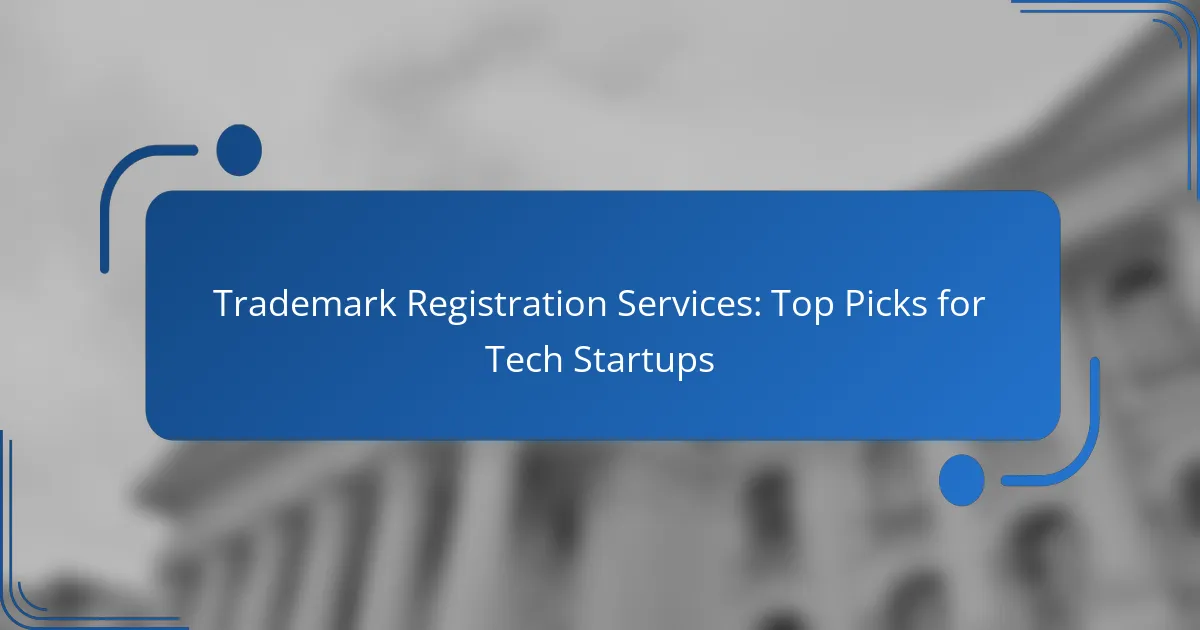When selecting a trademark registration service, it’s essential to consider customer reviews as they offer valuable insights into the experiences of previous clients. A service that combines user-friendly processes with expert assistance and positive feedback can greatly enhance your registration experience. By evaluating these reviews, you can make an informed decision that aligns with your needs and budget.
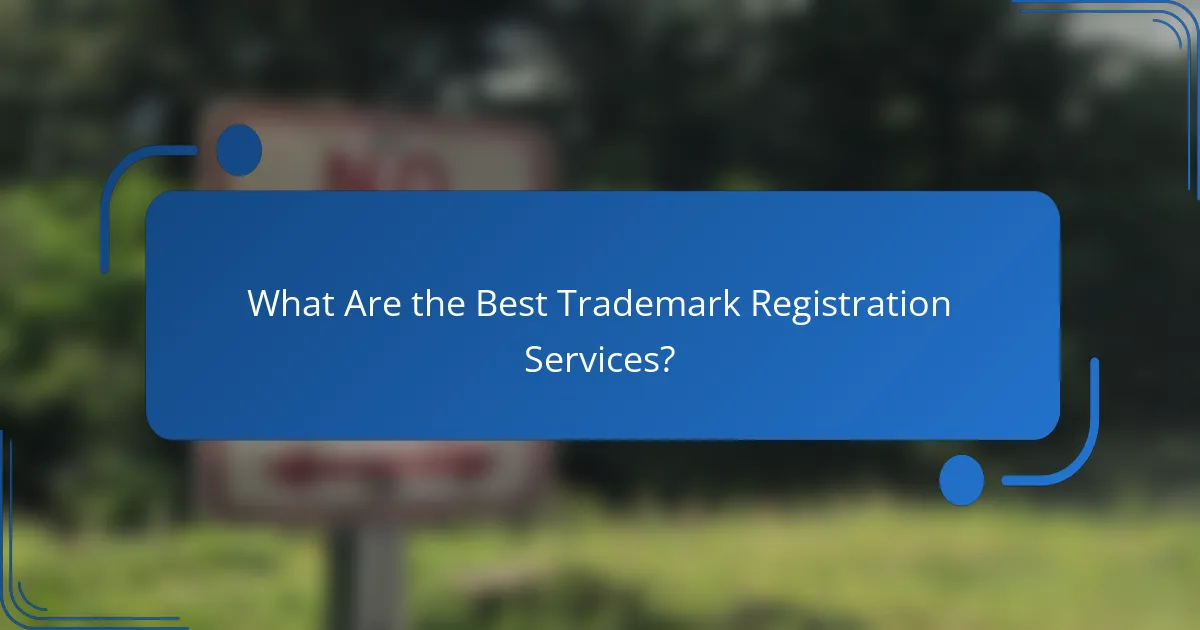
What Are the Best Trademark Registration Services?
The best trademark registration services offer a combination of user-friendly processes, expert assistance, and positive customer feedback. Evaluating options based on reviews can help you choose a service that meets your needs and budget effectively.
LegalZoom trademark registration
LegalZoom is a well-known provider of trademark registration services, offering a straightforward online application process. Customers appreciate the step-by-step guidance and the availability of legal advice, which can be crucial for first-time applicants.
Pricing typically starts in the low hundreds of USD, depending on the package selected. LegalZoom also provides a satisfaction guarantee, which adds a layer of security for users concerned about the registration process.
Rocket Lawyer trademark services
Rocket Lawyer offers trademark registration services that include access to legal documents and attorney consultations. This service is particularly appealing for small businesses that may need ongoing legal support beyond just trademark registration.
With a subscription model, users can expect to pay a monthly fee, which can be economical for those who require multiple legal services. Customer reviews often highlight the ease of use and the quality of legal assistance provided.
Trademarkia registration options
Trademarkia is known for its extensive database and user-friendly interface, making it easy to search for existing trademarks and file applications. This service is favored by users who want a comprehensive approach to trademark registration.
Trademarkia’s pricing is competitive, often starting around the low hundreds of USD for basic registrations. Users should be aware that while Trademarkia offers a lot of resources, they may need to seek additional legal advice for complex cases.
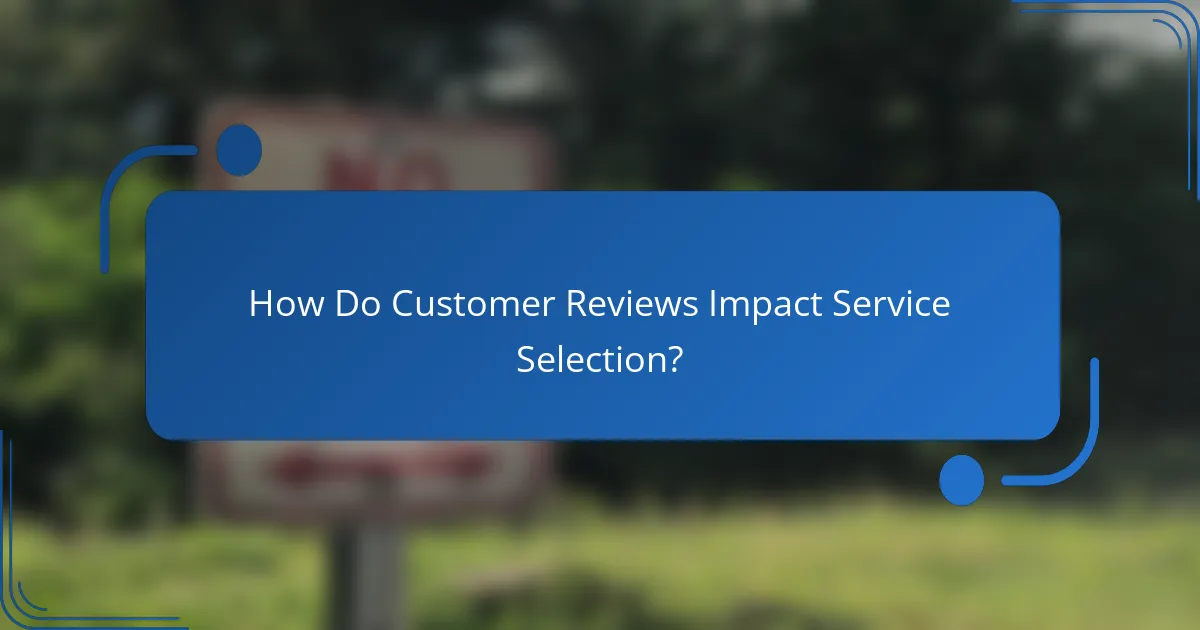
How Do Customer Reviews Impact Service Selection?
Customer reviews significantly influence service selection by providing insights into the experiences of previous clients. These reviews can highlight strengths and weaknesses of trademark registration services, helping potential customers make informed decisions.
Importance of customer feedback
Customer feedback serves as a vital resource for evaluating trademark registration services. It reflects real-world experiences, allowing prospective clients to gauge the reliability and efficiency of a service provider. Positive reviews can build trust, while negative feedback can serve as a warning sign.
Moreover, customer reviews can reveal specific aspects of service quality, such as responsiveness, clarity of communication, and overall satisfaction. This information is crucial for businesses looking to protect their intellectual property effectively.
Common themes in reviews
When analyzing customer reviews, certain themes often emerge. Many clients emphasize the importance of timely service and clear communication throughout the trademark registration process. A common complaint is the lack of transparency regarding fees and timelines, which can lead to frustration.
Additionally, reviews frequently mention the level of expertise and support provided by the service team. Clients appreciate when staff are knowledgeable and can answer questions thoroughly. This highlights the need for potential customers to seek services with a strong track record of customer support and satisfaction.
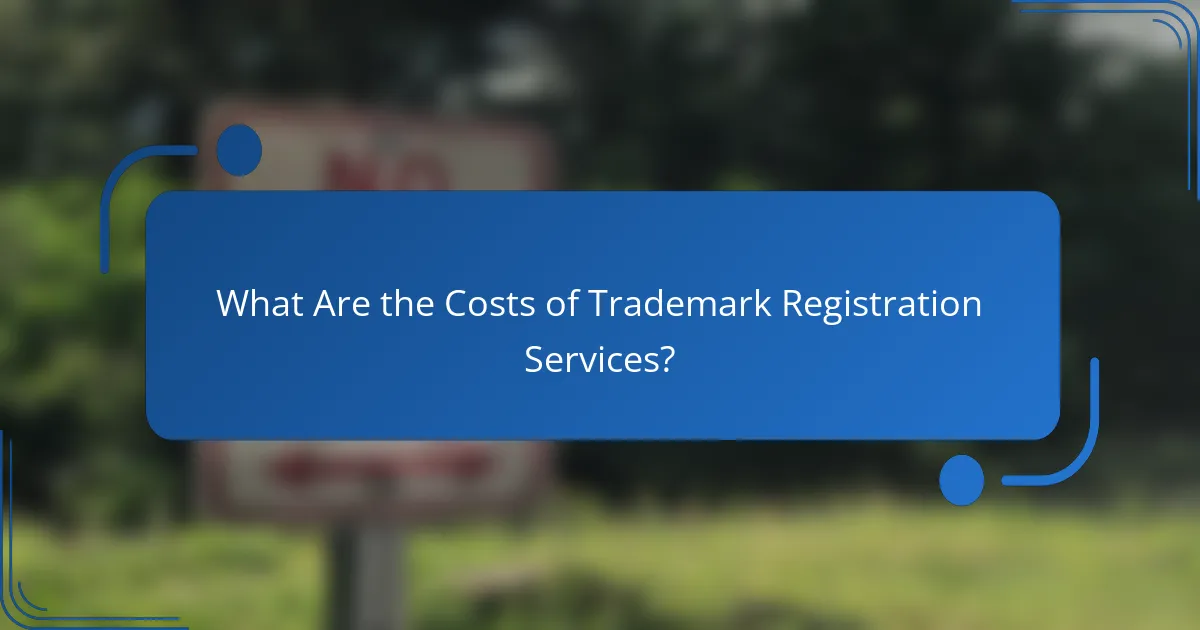
What Are the Costs of Trademark Registration Services?
The costs of trademark registration services can vary significantly based on the provider, the complexity of the application, and additional services required. Generally, you can expect to pay anywhere from a few hundred to over a thousand dollars for comprehensive trademark registration assistance.
Average pricing for LegalZoom
LegalZoom typically charges between $249 and $599 for their trademark registration services, depending on the package you choose. The basic package includes filing the application and a trademark search, while higher-tier options offer additional features like legal consultations and monitoring services.
Keep in mind that these prices do not include the government filing fees, which can add another $225 to $400 per class of goods or services. It’s essential to review what each package includes to ensure it meets your needs.
Cost comparison with Trademarkia
Trademarkia offers trademark registration services at a lower starting price, usually around $199, but this may not include as many features as LegalZoom’s offerings. Their basic service includes the filing of the application and a basic search, but additional features like legal advice or monitoring may incur extra costs.
When comparing costs, consider what services are essential for your trademark registration. While Trademarkia may seem cheaper initially, the lack of comprehensive support could lead to additional expenses down the line if issues arise during the registration process.

What Are the Key Features to Look For?
When evaluating trademark registration services, focus on customer support availability and the processing speed of applications. These features significantly impact your experience and the efficiency of securing your trademark.
Customer support availability
Reliable customer support is crucial when navigating the trademark registration process. Look for services that offer multiple channels of communication, such as phone, email, and live chat, to ensure you can get assistance when needed.
Consider the hours of operation as well. Some services provide 24/7 support, while others may only be available during standard business hours. Quick response times can make a significant difference, especially if you encounter issues or have urgent questions.
Processing speed of applications
The processing speed of trademark applications can vary widely among services. Some companies may complete the initial filing within a few days, while others might take weeks. Check reviews to gauge the average turnaround times for the services you are considering.
Additionally, be aware of potential delays caused by factors like incomplete applications or additional documentation requests from trademark offices. Choosing a service with a streamlined process can help minimize these delays and expedite your trademark registration.

How Do I Evaluate Customer Reviews Effectively?
To evaluate customer reviews effectively, focus on the credibility of the sources and the overall sentiment expressed in the feedback. This approach helps you discern genuine experiences from biased opinions, guiding your decision on trademark registration services.
Identifying reliable review sources
Start by selecting review platforms known for their authenticity, such as Trustpilot, Google Reviews, or industry-specific forums. Look for sources that verify user identities to minimize fake reviews.
Additionally, consider reviews from professional organizations or legal websites that specialize in trademark services. These platforms often provide more in-depth insights and expert evaluations.
Analyzing review sentiment
When analyzing sentiment, categorize reviews into positive, negative, and neutral. A high percentage of positive reviews can indicate a trustworthy service, while consistent negative feedback may signal underlying issues.
Pay attention to specific themes in reviews, such as customer service responsiveness, pricing transparency, and the success rate of trademark applications. This qualitative analysis can reveal strengths and weaknesses that numbers alone may not convey.
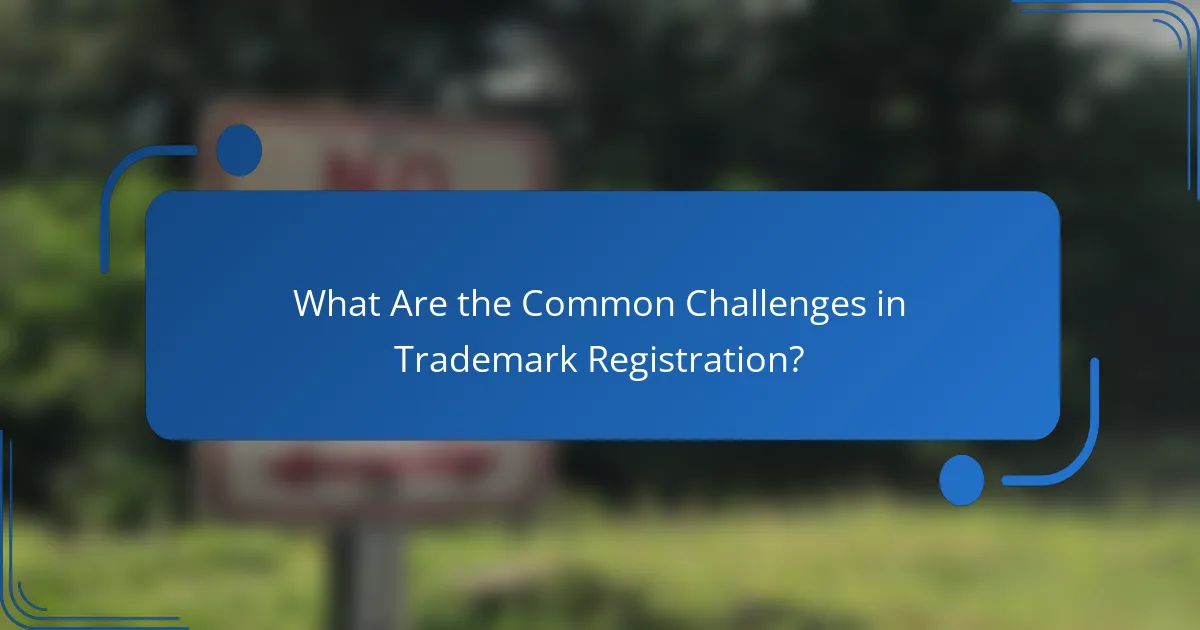
What Are the Common Challenges in Trademark Registration?
Trademark registration can be complex, often presenting challenges such as understanding classifications and dealing with application rejections. Navigating these hurdles is crucial for securing legal protection for your brand.
Understanding trademark classifications
Trademark classifications categorize goods and services to streamline the registration process. The Nice Classification system, widely used internationally, divides products and services into 45 classes, making it essential to select the correct class for your trademark.
Choosing the right classification affects the scope of protection and potential conflicts with existing trademarks. For example, a trademark for a clothing brand would fall under Class 25, while a software application would be classified under Class 9. Misclassification can lead to application delays or rejections.
Dealing with application rejections
Application rejections can occur for various reasons, including similarity to existing trademarks or insufficient distinctiveness. If your application is rejected, you typically receive a notice outlining the reasons, which allows you to address the issues before reapplying.
To avoid common pitfalls, ensure thorough research on existing trademarks and consider consulting with a trademark attorney. If faced with a rejection, you can appeal the decision or amend your application, but be prepared for potential additional fees and time delays.
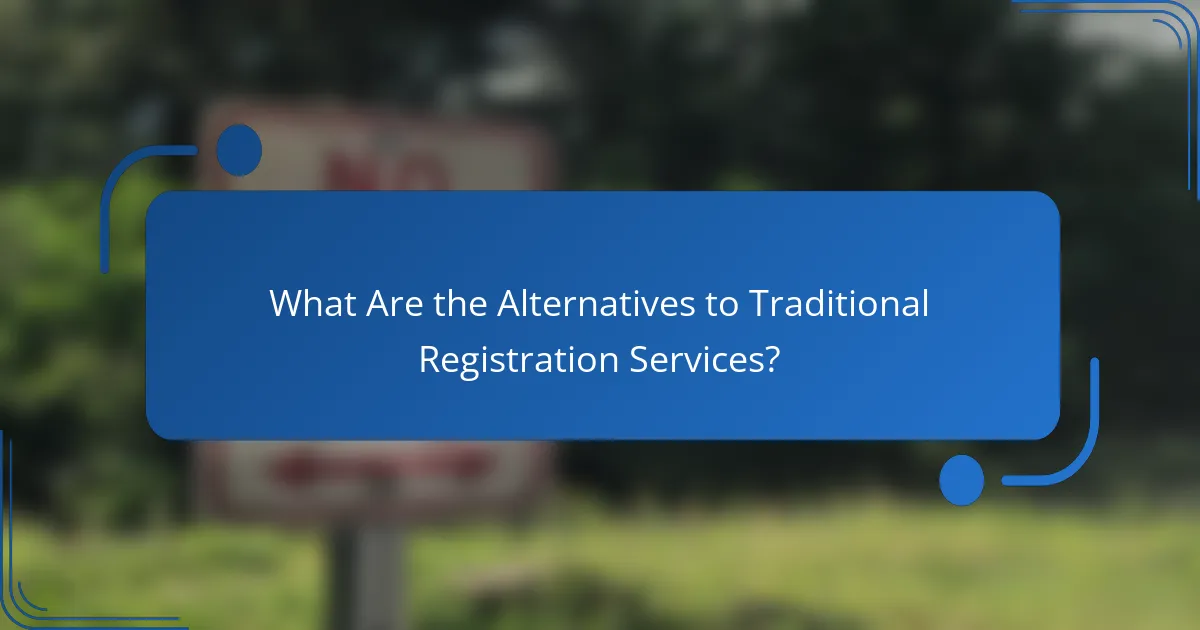
What Are the Alternatives to Traditional Registration Services?
Alternatives to traditional trademark registration services include DIY trademark registration, online platforms, and legal assistance from specialized firms. Each option has its own advantages and drawbacks, depending on your budget, expertise, and the complexity of your trademark needs.
DIY trademark registration
DIY trademark registration allows individuals or businesses to file their trademarks directly with the relevant government authority, such as the United States Patent and Trademark Office (USPTO) or the European Union Intellectual Property Office (EUIPO). This approach can save costs, as you avoid service fees from registration companies.
However, it requires a good understanding of the trademark process, including conducting thorough searches to ensure your mark is unique and not infringing on existing trademarks. Mistakes in the application can lead to delays or rejections, so careful attention to detail is crucial.
To successfully navigate DIY registration, follow these steps: research existing trademarks, prepare your application accurately, and monitor its status. Consider using online resources or guides to help you through the process, but be aware of the potential pitfalls of self-filing.
